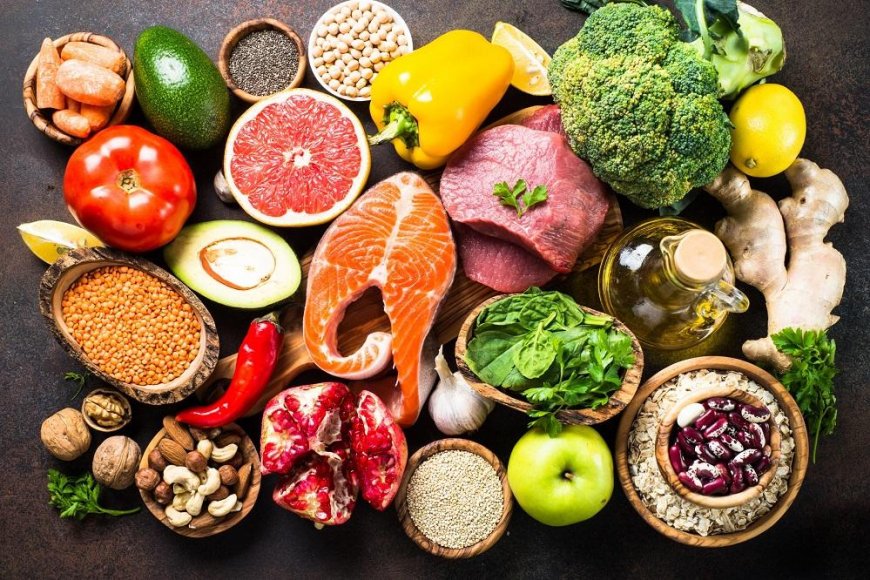How to take care of autumn immunity?
protection against disease. Its weakening causes frequent infections, especially in the fall season. How to take care of autumn immunity.

How to take care of immunity
Autumn is a real test for our health and immunity. How can we protect ourselves from autumn infections? The proper functioning of the immune system is essential for effective protection against disease. Its weakening causes frequent infections, especially in the fall season. How to take care of autumn immunity.
As the temperature drops, the blood vessels contract, which results in less oxygen supply to tissues and organs, and an increase in blood pressure. Frosty air causes a significant loss of body temperature, and sudden changes in temperature during the day (even above 6 ° C) burden the human body. All this leads to hypothermia and changes in the functioning of the circulatory system, which reduces the immune system. It is also believed that the total cloud cover for a long time has a negative impact on the activity of the body and the human psyche. This leads to a decrease in immunity, sleep disorders, and constant fatigue.
IN WHICH PRODUCTS TO ENRICH YOUR DIET FOR AUTUMN?
Adequate nutrition is essential for the proper functioning of the immune system. The most important thing in maintaining immunity are several elements that are worth paying special attention to in your diet.
Vitamin D:
In addition to supporting the skeletal system, this vitamin is essential in stimulating the immune response. All this enables the elimination of bacteria and viruses that attack the body. Vitamin D has synthesized in the skin during the summer months thanks to the sun's rays. However, in autumn and winter, due to the weather, there is often a shortage of it. This in turn leads to immune disorders and more frequent infections. That is why vitamin D supplementation is recommended from September until the end of April. Vitamin D is found in food, including fish, cheese, butter and yoghurt, but its amount is insufficient to meet the body's needs.
Vitamin C:
This vitamin has antioxidant properties and therefore protects the cells of the immune system against free radicals. Numerous studies show that adequate vitamin C intake has a preventive effect on the incidence of colds. This vitamin is believed to protect the cells of the immune system from the stresses caused by infections. Therefore, in the fall, it is worth introducing natural sources of vitamin C to your diet. in: citrus fruits, rose hips, peppers, blackcurrants, Brussels sprouts, broccoli, strawberries, tomatoes, and other fruits and vegetables.
Zinc:
This element works on the immune system in many ways. It intensifies the immune response, inhibits the multiplication of bacteria, and supports the functioning of the cells of the immune system. Additionally, it supports the thymus gland - an organ that enables cells of the immune system to mature. The main sources of zinc in the diet are whole grains, pumpkin seeds, sunflower seeds, meat, eggs and fish.
Selenium
This mineral protects the body against oxidative stress. It stimulates the immune response and the functioning of the cells of the immune system. Foods rich in selenium include meat, fish, corn, wheat, mushrooms, and nuts.
Omega-3s
These acids also support the immune system by influencing inflammation. The main key component of the immune response. During infection, omega-3 fatty acids strengthen the body's defenses, after an illness, they support regenerative processes. The natural source of omega-3 fatty acids is primarily fatty sea fish, as well as linseed, chia seeds, and walnuts.
Must Read: WhatsApp Beta for Android is improving its PiP mode: this is its new interface
HOW DOES SLEEP AFFECT YOUR HEALTH?
Sleep has a huge impact on immune function. Its deficiency weakens the functioning of immune cells, which are responsible for the destruction of viruses, and increases the concentration of pro-inflammatory factors. Additionally, lack of sleep raises blood cortisol levels, which is considered a stress hormone. All this affects the deterioration of immunity. That is why sleep hygiene is so important.
What does it mean? First of all, the number of hours slept, that is 7-9 hours for an adult. It also means appropriate conditions in the bedroom, such as silence, the right temperature (18-22 ° C), fresh air and less light.
A healthy lifestyle is most important in supporting our immune system. Immunity should be taken care of throughout the year, not only in autumn, to be better prepared for the period when the risk of infection with viruses and bacteria is greater. It is worth remembering the above rules, especially as the functionality of the immune system decreases with age.
CAN DIET SUPPLEMENTATION WITH VITAMIN C AND D AND ZINC AFFECT OUR IMMUNITY?
There is a lot of evidence for a relationship between vitamin C, D, and zinc and beneficial effects on immunity. Moreover, out of all the vitamins and minerals, these 3 have the best-documented effects.
Zinc is the key ingredient. Participants included in the production of the thymus in - a hormone that stimulates the development of T lymphocytes in the thymus. In studies, even a slight zinc deficiency in the diet disturbed the balance between Th1 and Th2 lymphocytes, and appropriate supplementation restored the normal functions of the immune system.
Vitamin C is a free radical scavenger and electron donor for 8 enzymes. It affects the innate and acquired immune response, which is confirmed by research. A good example is, among others people exposed to intense physical exertion, in whom the altered values ‹‹of immune parameters were restored by supplementation with vitamin C.
One example of how vitamin D works is the increase in the production of cathelicidin, an antimicrobial protein considered important to the innate immune system.
All of the above ingredients that have a beneficial effect on the immune system are included in the maximum daily doses1 in the Ceviforte max dietary supplement.
